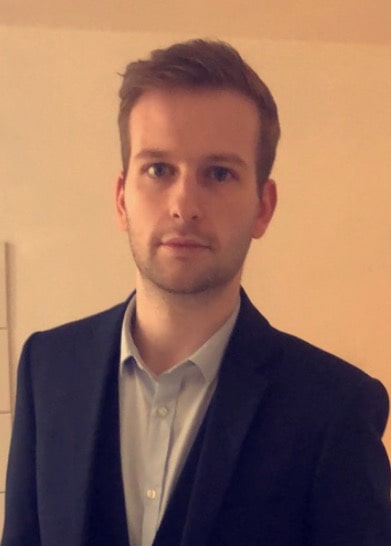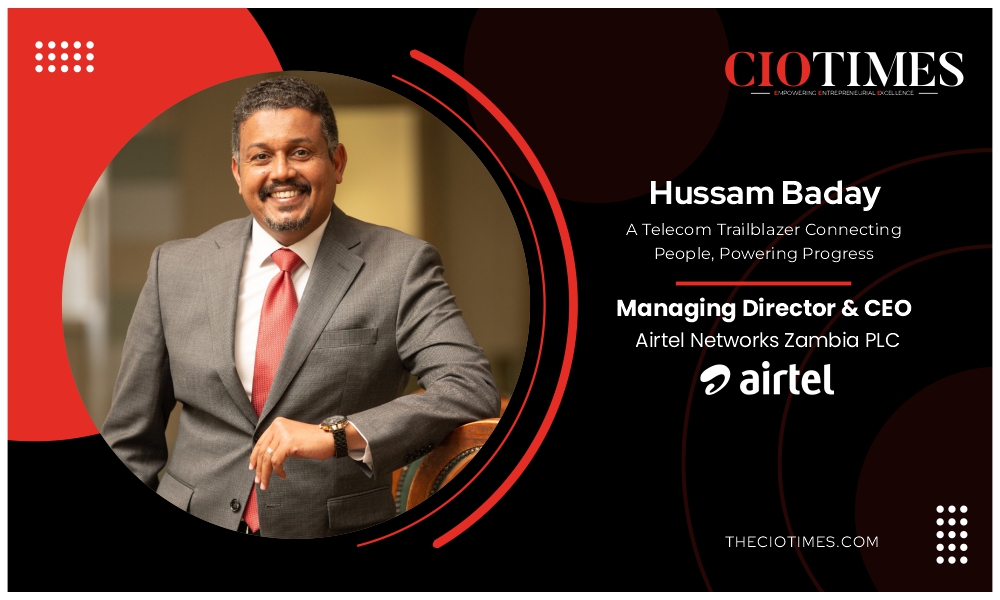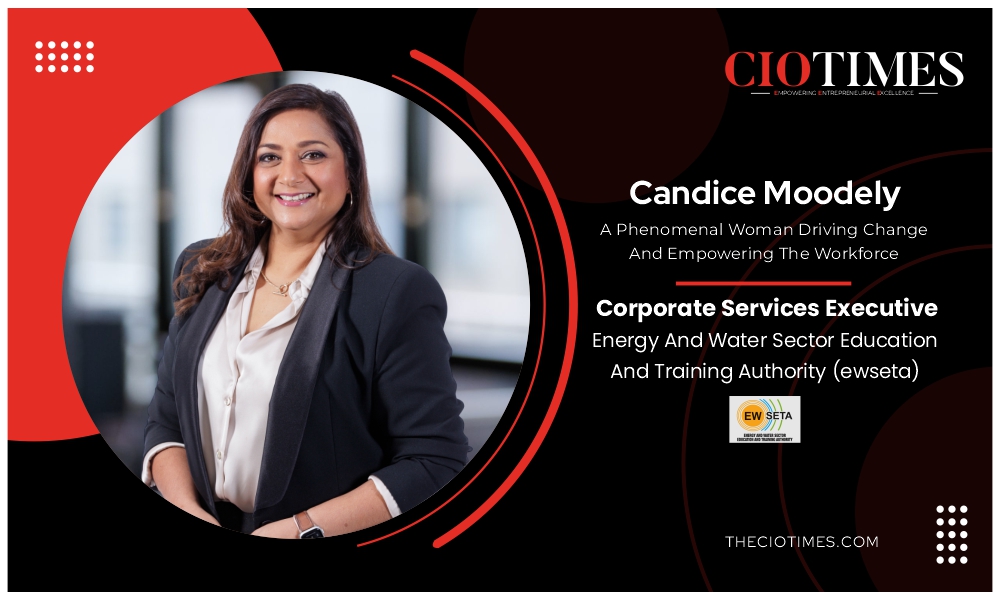A visionary in new Scientific Development, Research and
Technology. The 10 year journey from zero to Hero as he builds his 175M £
Business Empire.
What’s common between business and science you may ask? Well, they might seem distinct, but there’s no denying the fact that they intersect and often influence each other. For example, scientific research can lead to the development of new technologies that can be used to develop new products and drive business growth. Businesses also use scientific methods especially mathematical and statistical data analysis and
interpretation for decision-making.
As the Founder and Chief Scientific Officer of Sigma Solutions, Luthais McCash offers distinct ideas in state-of-the-art data analysis to a variety of businesses across multiple industries. Recognized as one of the Top 20 most dynamic CEOs in the UK in 2022, he is known to finding scientific and creative solutions to complicated problems. Arounen Arnasalon, Founder, Adstrum Accountancy comments, “I can say that he is very knowledgeable, thorough, and rigorous in his approach after a year of collaboration.With such a broad range of expertise and dedication, Luthais McCash ensures only the best for any business he works with while constructing blueprints. He has no trouble bringing business and science together and making it work.” Luthais’ work is “a separate talent of its own.”
Serving Multiple Businesses
Luthais founded his company with the belief that the world needs exciting emerging innovation technology. He believes that there’s no point in just redoing what’s been done for the past 100 years. Through Sigma Solutions, Luthais does a lot of mathematical modelling, physics, and statistical science to provide new models and solutions, optimal solutions for clients in a wide range of sectors. In conjunction with that, there are multiple businesses that he is associated with.
For example, he is a Board Advisor at Digital Ability, a tech company that tries to provide accessibility solutions for people that are looking to bank online. So, for example, if you’re visually impaired, the online banking system isn’t set up in a way that’s conducive to helping you. So, they develop technology that allows this to be more accessible to people. As a Member of the Board, he is responsible for advising on technology, algorithms, mathematical models, and data science strategy.
Luthais has just acquired a 40% shareholding in Stratoboster, a UK space company developing low volume payloads. Founded by two Aeronautical Engineers Ben Masey and Andrew Dunn in 2018, Statobooster is looking to expand its technology and commercialize their unique IP. They both recognized the exceptional technical expertise McCash could bring to the business as well as his sharp business mind and commercial strategy. This also couples with McCash’s interest in developing energy efficient space resource and higher orbit travel. In conjunction with his expertise, McCash invests 2M GPB into the business propelling it forward. “Space technology is quickly advancing. I’m very excited to join the Board as a lead investor and scientist. We have an aggressive strategy to move things forward in an effective and robust way.”
Luthais is also working on holographic technology. He’s involved in developing new holograms and holographic technology for near-instantaneous communication and information transfer. His new business Ologramma has already been in the pipeline for several months working with colleagues on the concept. Already the firm have £10 million pledged investment. These acquisitions only add to Luthais’ exceptional net worth, reported recently at £175M.
As if this isn’t enough, Luthais has a great passion for travel. “Travel has always been a huge interest of mine, exploring and experiencing different cultures. Covid-19 brought back Staycations and the spirit of traditional family holidays. I’m very excited to be joining Roamad at such an exciting time where we can really accelerate the staycation travel and leisure industry”. Roamad is a compact camping app where you can quickly book campsites, discover new places and stay connected. Julian Niven, CEO and Founder tells us “It’s a pleasure to have Luthais working alongside me and the team at Roamad. His achievements and experiences will help us succeed in becoming the #1 camping app globally. With Roamad, finding your next adventure has never been easier.”
Early Achievements
Luthais broke into the industry scene after being recognized as a fellow of the Royal Statistical Society (RSS) in May 2020. His inventive work on advanced modelling and optimisation in the energy industry with a focus on oil and gas won accolades from all corners. The technology developed and implemented by Luthais transformed the trading and efficient distribution of liquified natural gas by cutting costs by a factor of 10. In June 2021, he was re-elected as a fellow of the RSS. He was also an Honorary Fellow at the University of Leicester between 2019-2021. He also holds a research position at Durham University and serves as the Chair of the Mathematical and Theoretical Physics Group at The Institute of Physics. Professor Timothy Newman, Retired Dean of Science and Engineering at the University of Dundee stated “Luthais is a very extraordinary young man and very unusual in the amount of ambition he has. He has a very broad perspective of science for one so young – he gets it.”
The Challenges
In the consultancy space, Luthais often meets clients that are not necessarily scientific experts and so one of the challenges is in the communication of science – being able to understand what the problems are that these clients have and being able to try to get to the bottom of that is a challenge because often what you find is that the problem that the client thinks they have and the actual problem that they have are not the same things. So, they might have some understanding of what their problem is, but, scientifically that’s not maybe necessarily the same. It is therefore a necessary skill, being able to communicate effectively which is often a challenge, not just in business but just in terms of public understanding of science.
Coupled with this, he finds that the broader public need to be less averse to learning about science. Equally, scientists need to make more of an effort to communicate the work that they’re doing in the importance of that work to that broader public.
Challenges across Multiple Industries
Luthais feels there’s so much of a split between different industries but more of a split between different problems. So, for example, you could have a fluid flow problem in the O&G industry that you would maybe model or solve our approach in the same way that you would, for example, a climate pressure problem. So, these are two different industries and two different kinds of scenarios, but actually, fundamentally the scientific problem is the same in terms of the approach.
Dealing with Failures
Luthais feels fortunate in that they have a team of some of the best scientists in the world and so there’s never yet been a problem that they have not been able to solve. That said, there are challenges and sometimes that challenge is being able to communicate those results to clients and how you want to do that has to sometimes change depending on the client to which you’re communicating those results.
The Industry and the Promises
In the past few years, Luthais and his team have developed statistical models to ensure that electricity and gas supply is available and that this can be routed and rerouted through the country successfully. They’ve developed price predictive models in relation to that which have been successful and ensuring that one can reduce prices in building for the utility companies. During Covid, in 2020, they developed optimization models for a client who was interested in the hospitality sector to ensure that at any given time everybody was seated the appropriate distance away from each other while ensuring that the venue could bring in as many people to the venue as possible.
There have been lots of things in the past couple of years that they’ve been very, very successful at and have been pioneering. The industry, Luthais believes is very progressive and there’s a great lot of new work happening in terms of the science and technology space, but the industry is very much focused on things like artificial intelligence, and machine learning. “I also think that where the industry also falls back is that technology like data science, machine learning, and artificial intelligence have been buzzwords for the past 20 years or so, but when it comes to fundamentally understanding the problem, what you need is mathematics and you need very advanced mathematics. And so, where I think businesses maybe are behind the curve a little bit is that they don’t give enough value to mathematicians, mathematics and physicists and they’re too focused on technology alone. Technology is important and has a very significant role, but you need more than a data scientist to develop something that is going to be revolutionary using that technology.
Focus for Future
Luthais and his team are offering something unique because they’re relying upon very high-end scientific expertise in order to solve these problems rather than just taking some existing model and changing some parameters and changing some values and hoping that it works which is often the kind of current approach. His turn-key focus in the coming years would be his space company and holographic technology, which is very interesting because it relates to near-instantaneous information.
Advise for Budding Scientists
“The biggest thing is being curious. If you’re curious about how the world works and how the universe works and why things work the way you do, then really you want to be a scientist. You also need to work hard, I mean it’s been a misconception that people that are very good at science are gifted or talented or they become good at science, but that’s not quite true. I mean they have to work hard, and they have to persevere and there are a lot of things and science that you might try that are going to be incorrect, but you need to not be disheartened and you need to persevere and you need to keep going. So, I think perseverance, patience and curiosity are kind of key things to consider.” Professor Jeremy Levesley, Emeritus Professor at the University of Leicester, “I have worked with Luthais at the University of Leicester. Luthais is helping us shape our view on enterprise education for our students, helping them to be confident problem solvers, using mathematical and computational tools flexibly.”




